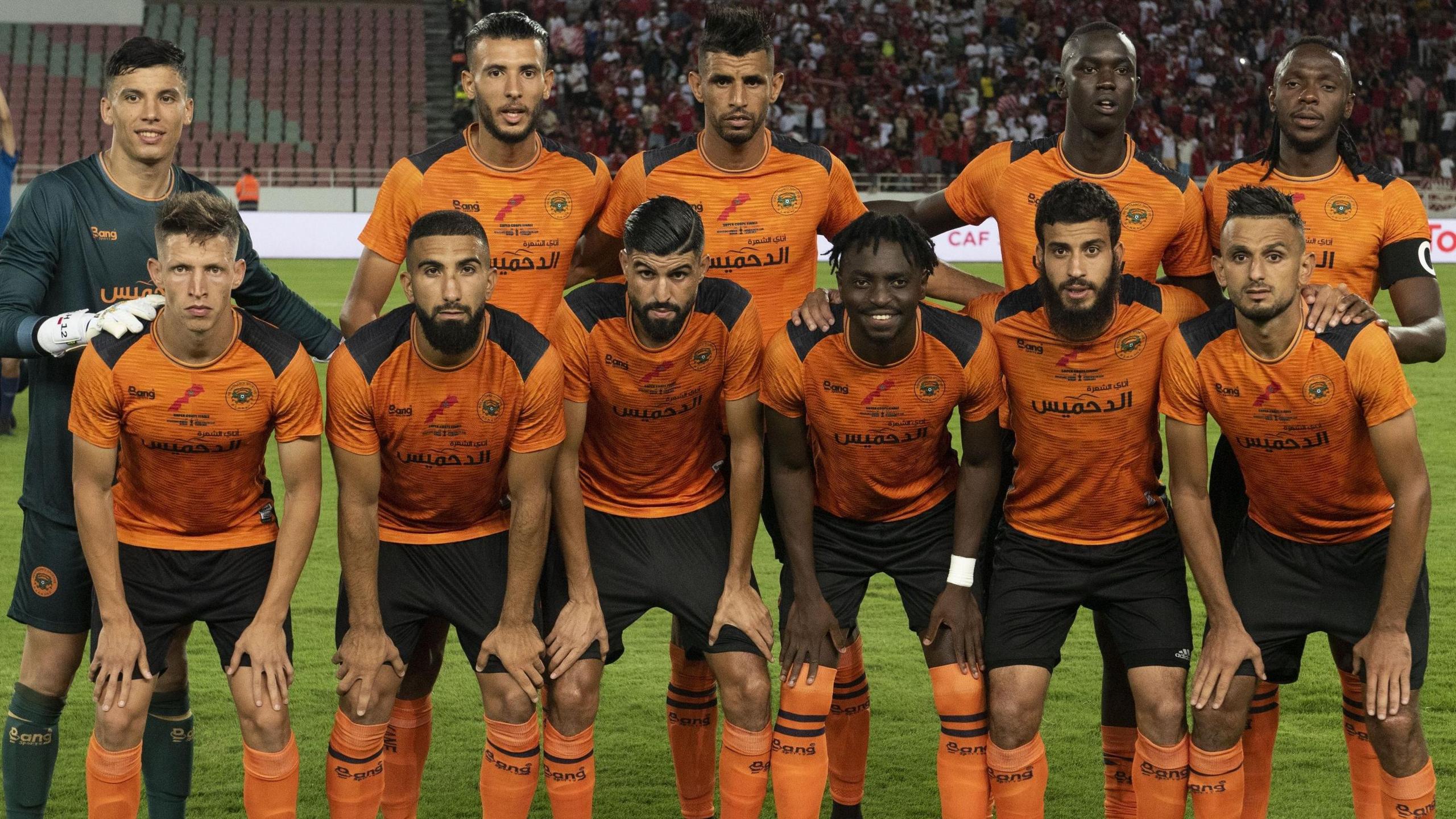Match off after row over map of Morocco on shirt

RS Berkane's kit also featured the extended map of Morocco when they played in the Caf Super Cup in 2022
- Published
The first leg of the Caf Confederation Cup semi-final between USM Alger and Renaissance Berkane did not take place on Sunday because of a row over the visiting side's shirt.
Berkane's strip features an extended map of Morocco, which includes the disputed territory of Western Sahara.
Algeria sees the map, which is displayed in the centre of the shirt, as a provocation and customs officials confiscated the kit when the Moroccan club arrived in the country on Friday.
But Berkane have used the same jersey throughout this season's competition - as well as a similar design in previous continental campaigns - and the Confederation of African Football (Caf) upheld their right to wear it in Algiers after a hastily-convened meeting of its inter-clubs committee.
Both sides travelled to the stadium for the match and USM Alger came out for kick-off, but the visitors remained in their dressing room.
A said the matter "will be referred to the competent bodies".
The governing body also issued an apology to sponsors, TV partners and supporters for any inconvenience caused.
USM Alger are the holders of the Confederation Cup, which was the second-tier continental competition before the introduction of the Africa Football League, while Berkane lifted the trophy in 2020 and 2022.
The second leg of the semi-final is scheduled to be held in Berkane on Sunday, 28 April.
Frosty neighbours
Tensions between Algeria and Morocco have been strained for many years, with Algeria severing diplomatic ties in 2021.
The political spat caused Morocco to pull out of last year's African Nations Championship, which was hosted in Algeria, after being denied permission to fly direct from Rabat.
Morocco laid claim to Western Sahara in 1957, when it was still under Spanish colonial rule, and then annexed the territory in 1975.
Sparsely populated but with phosphate reserves and rich fishing grounds, it has been the subject of a long-running territorial dispute between Morocco and its indigenous Sahrawi people, led by the Polisario Front.
The Polisario Front declared the Sahrawi Arab Democratic Republic, with a government in exile in Algeria, in 1976.
A 16-year-long insurgency ended with a UN-brokered truce in 1991.
Related topics
- Published28 October